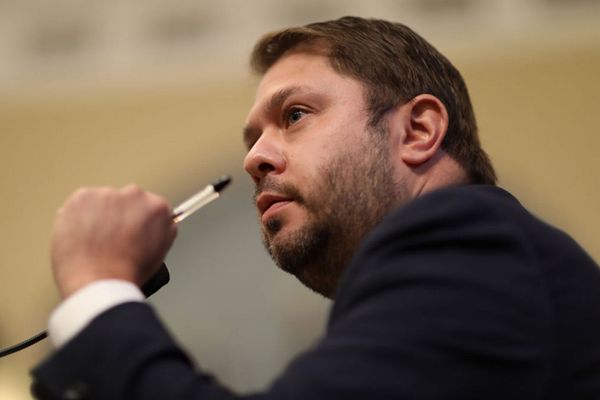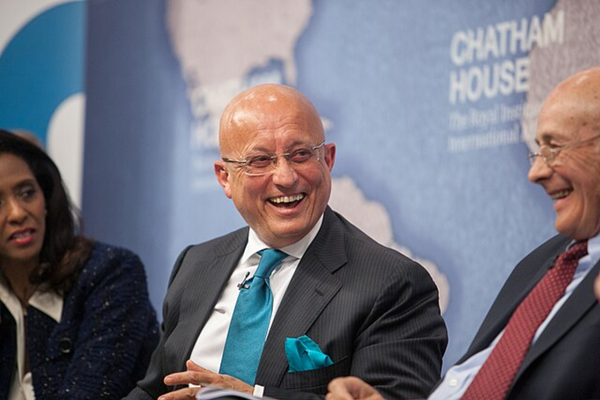
Rishi Sunak and Boris Johnson pushed repeatedly against lockdown measures during the second wave of Covid in autumn 2020, with the government’s chief scientist accusing the then chancellor of using “spurious” arguments against new rules, the inquiry into the pandemic has heard.
In a day of evidence that placed increasing focus on Sunak’s role, the inquiry also heard that his flagship “eat out to help out” hospitality scheme was imposed without consulting the government’s Covid taskforce, leaving officials “blindsided” by the Treasury.
There were also further details of the way officials and scientists were exasperated by Johnson’s propensity to be influenced by others and change his mind on decisions.
In extracts from his contemporaneous diary, Sir Patrick Vallance, at the time the government’s chief scientific adviser, complained in October 2020, as a possible “circuit breaker” brief national lockdown was being discussed, that Johnson was “all over the place”.
Sunak, Vallance wrote, was making “increasingly specific and spurious arguments” against new restrictions on hospitality businesses.
In another diary entry later in October, Vallance complained that Johnson “owns the reality for a day, and then is buffeted by a discussion with CX [chancellor of the exchequer]”.
The evidence, shown during testimony from Simon Ridley, the senior civil servant who became head of the Cabinet Office’s Covid taskforce in May 2020, revealed other officials’ apparent frustration at Johnson’s inability to make a decision on whether to reimpose national restrictions amid fast-rising infection numbers.
A series of meetings and briefing papers from the period warned repeatedly that the system then in place of regional “tiers” of rules was not curbing the virus, with Johnson and Sunak pushing back against tougher regulations.
In handwritten comments on one document about future options, Johnson wrote: “What do we really achieve by smashing up the economy if we have no idea how many times we are going to have to do it?”
In the end, a circuit breaker did not happen and another national lockdown was imposed only in early January.
Asked if an early circuit breaker might have made a longer national lockdown unnecessary, Ridley said: “I certainly think we should have taken stronger action earlier. In hindsight, the regional approach didn’t work, and so national action may well have been better, but that comes with other consequences.”
Earlier in the hearing, Ridley said neither he nor the Covid taskforce had known anything about “eat out to help out” before it was announced.
Questioned on whether this concerned him, given the taskforce’s role in coordinating all Covid policy across government, Ridley said: “Things happen that surprise … This was announced as government policy. I didn’t spend time worrying particularly about the whys and wherefores of that.”
Asked if it was fair to say he was “completely blindsided by the Treasury and there was nothing you could do”, Ridley replied: “Correct.”
The exchanges heap more pressure on Sunak over the scheme, which the inquiry has already heard attracted criticism from scientists and officials at the time for encouraging social mixing.
Chris Whitty, the government’s chief medical officer, called the scheme “eat out to help out the virus”, the inquiry was told last month.
Another evidence session heard that Prof Dame Angela McLean, who is now the government’s chief scientific adviser, sent a message calling Sunak “Dr Death the chancellor” in apparent reference to the scheme.
Tuesday’s hearing was also told that officials raised concerns at the start of Covid that discharging potentially infectious hospital patients into care homes could mean that “many die”, and that the health department had lost sight of this.
Ridley said the Cabinet Office and Downing Street felt it had to push Matt Hancock’s health department about the situation in care homes.
The inquiry was shown an email sent on 3 April by Alexandra Burns, then the private secretary to Boris Johnson, asking “whether there is a coherent overall strategy for care homes, in either DHSC [the Department of Health and Social Care] or in MHCLG [the Ministry for Housing, Communities and Local Government] or between them”.
She wrote: “Most of what I’ve seen on care homes has been about supporting NHS capacity … Just looking at some of the stuff coming out of Europe and it feels like something we need to be properly ahead of given that once someone gets it in one of these places many die.”







